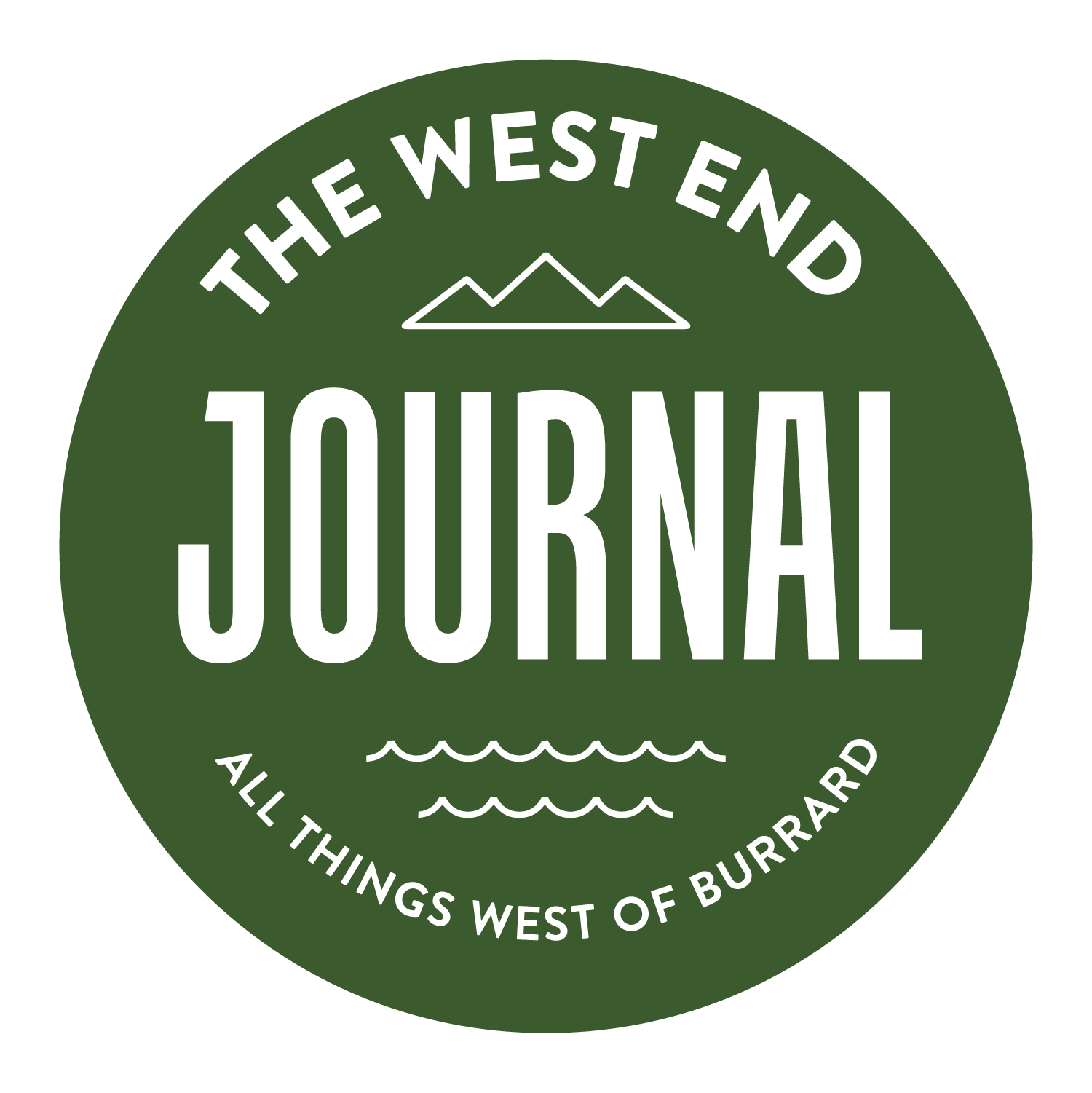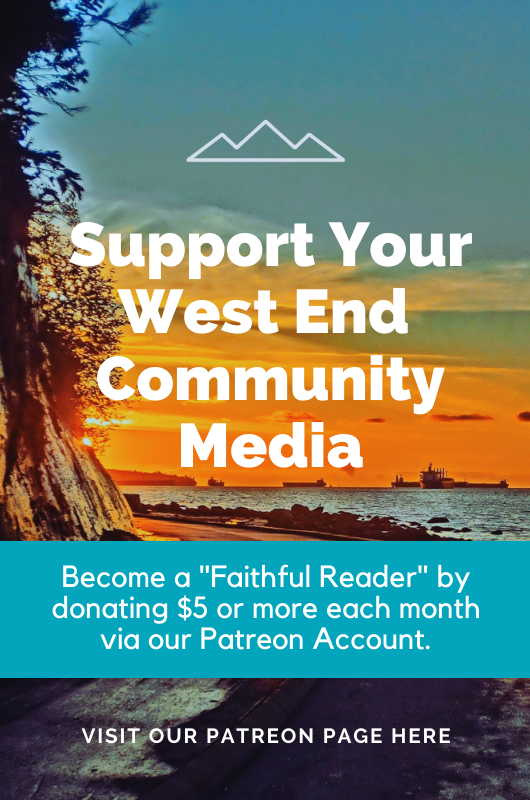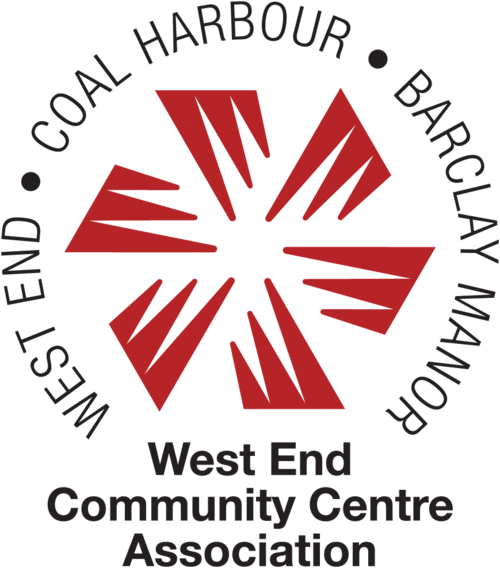A CLOSER LOOK
/SHORT-TERM RENTALS IN A HOUSING CRISIS
by John Streit
A recent check of the official Airbnb web page shows the West End has around 500 units available for short-term rental.
One, at Chilco Street and ted northe Lane (the company doesn’t show building or suite numbers, just a price tag on a map), is posted as a “Cozy&Lovely family townhome with free parking,” for $345 per night. The description says you’ll be staying at Jacqueline’s condo; “the whole home is yours,'' the lister writes, including two bedrooms, three beds and 1.5 baths. Guests are instructed to pick up the keys five blocks away at the 7-Eleven on Denman and Comox.
HOW MANY Airbnb apartments are tucked away amid the towers and low and mid-rise apartments of the west end?
Reviews are glowing and the host gets top marks for cleanliness, accuracy, and location.
At another Airbnb on Haro Street near Cardero, you can stay at a small condo hosted by Dawn. The post makes clear that “this is my personal home that I do live in but am able to leave when you book.” It’s listed at $419 per night and has excellent reviews.
Over on Barclay Street near Bute, visitors can rent a studio unit hosted by Spencer. It’s described as a modern and spacious with brand new furnishings, offering “the ultimate comfort and luxury during your stay.” It can be yours for $322 a night.
Airbnb isn’t the only company offering short term rentals in the West End. Others include VRBO, Expedia, FlipKey, Rent It Furnished and Sublet, among many others.
But starting next May, running this sort of business in B.C. may become more difficult.
In the face of a persistent housing crisis and with short-term rentals (STRs) becoming more common, the provincial government has passed new legislation targeting the industry. The idea is that rental units, which could otherwise be long-term, are being diverted onto the STR market.
According to provincial numbers, there are around 28,000 daily active short-term rental listings in B.C., an increase of 20 per cent from last year. 16,000 homes are listed as STRs for most of the year.
The Province is implementing a principal residence requirement, with STRs only allowed in a host’s principal residence, plus one secondary suite or accessory dwelling unit. Resort communities, ski resorts and places under 10,000 are exempt, for now.
A provincial short-term registry is being established with stiff fines promised for rule breakers.
British Columbia continues to be in the grip of a housing crisis. According to the Canada Mortgage and Housing Corporation (CMHC), Vancouver’s vacancy is around 0.9 per cent, with the West End even lower at 0.4 per cent. The CMHC cites higher demand due to international and domestic migration and people not choosing to buy a home because of high interest rates. According to the rental website Zumper, the average rent for a one-bedroom apartment in Vancouver last month was $2,736, a nine percent increase over last year. A two-bedroom will set you back almost $4,000, a 14 percent increase over last year.
You may have noticed more than the average number of unhoused people sleeping in our neighborhood parks, the alleys, and out front of storefronts on Denman, Davie and Robson. An October homeless count in Vancouver conducted by the Homelessness Services Association of BC found a whopping 2,400 people living on the streets, 325 more than last year.
The West End Journal (TWEJ) reached out to the City of Vancouver (COV) about the short-term rental situation in the West End, specifically how many STRs are operating in our neighbourhood. Interestingly, the City said it doesn’t track them based on sub-location. Overall, there were 5,049 active listings in Vancouver. This may include multiple listings for the same unit on different platforms, and listings for both under 30 days and over 30 days.
We asked the COV if there’s evidence long-term units are being lost to short-term rentals. “The purpose of the City’s STR regulations is to protect long term rental housing, ensure public safety, and bring operators into compliance with our bylaws,” they said.
The City added that “in Vancouver, short-term rentals are only permitted in a principal residence which is the home where the operator resides. STRs are not permitted in a unit where a person does not live. The City is aware that not all listings are compliant with our by-laws, has a number of tools to identify non-compliant listings, and routinely escalates enforcement as necessary, which includes referring operators to the prosecutor’s office for the laying of charges.”
STR Violations breakdown in Vancouver (City of Vancouver graph)
TWEJ also asked for a breakdown of STR-related warning letters, legal orders and prosecutions in the West End. (click graph to enlarge)
“Staff proactively investigates illegal listings and has a variety of options to address suspicious listings, such as conducting an audit or inspection, issuing a violation ticket or warning letter, and suspending a business licence. STR operators who do not comply with City bylaws are subject to fines of up to $1,000 and legal orders per offence, and may be referred to the prosecutor’s office for legal action. Fines are issued at $1,000 and are reduced to $500 if paid within ten days. As the City’s priority is in investigating the complaints and enforcement tools are used regardless of the address, the information is currently not sorted by sub-regions,” City staff replied.
TWEJ asked about resident 3-1-1-type complaints to the City of Vancouver about suspected Airbnb’s operating in their building or others. We found out the City has received 148 complaints for addresses in our neighbourhood since 2020. So far this year, there have been 55. The information is currently not sorted by a complainant’s location.
The West End, with over 50,000 residents and growing, easily has the most purpose-built rental housing in the city. David Hutniak with Landlord BC believes these platforms are very prevalent in the West End, but more so in strata buildings than rentals.
DAVID HUTNIAK, CEO OF LANDLORD BC (LANDLORD BC PHOTO)
“I mean we need to build literally hundreds of thousands of homes in BC (like 610,000 by 2030 according to CMHC), with the majority being rental, to address the rental housing crisis. That’s where the heavy lifting needs to be done on the policy front in our view. A key area of focus, and the Province is definitely taking some steps in this direction, is to implement significant policy measures to ensure municipal land use policies, development fees, and permit approval processes are geared toward facilitating new housing (especially new purpose-built rental housing), not impeding it. Furthermore, our organization is focused exclusively on the provision of safe, secure, long-term rental housing and has been of the view for some time that we have lost long-term housing to platforms like AirBnB, which is problematic. We don’t monitor the penetration of these platforms in the market so we don’t have internal data in terms of the scale, but if what the Province reported recently, it’s not insignificant and likely under-reported,” Hutniak said.
Hutniak feels on the surface, the new provincial STR rules are far-reaching. “Registration and more robust enforcement (and penalties) would seem to make sense in the context of their objective, as does engaging the platforms to help with both,” Hutniak said, adding he doesn’t think we’ll know if the measures will have the desired effect right away.
Hutniak offers advice for landlords dealing with suspected illegal STR’s.
“Our members have access to a proprietary tenancy agreement that specifically prevents tenants from subletting their units or placing them in short term rental pools (like AirBnB) without written consent of the landlord. So, a tenant doing so is in breach of the tenancy agreement and subject to potential eviction. Despite these rather serious consequences, we are aware of tenants leveraging platforms like AirBnB and it does require regular monitoring by landlords to address the issue. We find that generally neighbouring tenants will report these short-term rentals, so there is an element of “self-policing” among residents as short-term rentals can be very disruptive and represent a potentially safety risk too,” he said.
As Hutniak mentioned, enforcement will be the key to any provincial success in cracking down on illegal STR’s starting next year. The perception in Vancouver (especially evident on social media housing chats) is there has been a complete lack of enforcement, with scofflaws making a mockery of City rules. Vancouver Mayor Ken Sim welcomes the coming provincial changes, saying, “we have said we need more support when it comes to enforcement and we are pleased to see the Province introduce these changes, with more significant consequences for those who seek to abuse the system. We are in a housing crisis and this will be a big step to ensure folks in Vancouver and across B.C. have more access to attainable housing.”
Sim’s fellow ABC Party Councillor Lenny Zhou has been active recently on the STR situation, responding to queries by residents about problem Airbnb’s in the City. In a post on X (formerly a tweet on Twitter) he lauded B.C. Housing Minister Ravi Kahlon. “Now that the STR Accommodations Act has passed, the ball is in the municipality’s court for enforcement. Together, we’ll make a positive impact on housing. ENFORCEMENT, ENFORCEMENT, ENFORCEMENT!!!,” Zhou wrote.
For its part, Airbnb has written to its STR hosts in B.C. asking them to fight the legislation by contacting their MLA’s. “Importantly, the government is classifying short-term rentals as any rental less than 90 days. This will impact hosts who share their homes on a more extended basis and will make it more difficult for those who travel for work, including healthcare, construction and contract workers, students, and those travelling to access healthcare to find a longer-term place to stay. Join other Hosts in emailing BC legislators to share your story and ask them to protect your right to host.”
West Ender John Streit has been a B.C. radio, TV and online journalist for more than 20 years.
You can listen to John anchor Global News on 980/CKNW in Vancouver.




